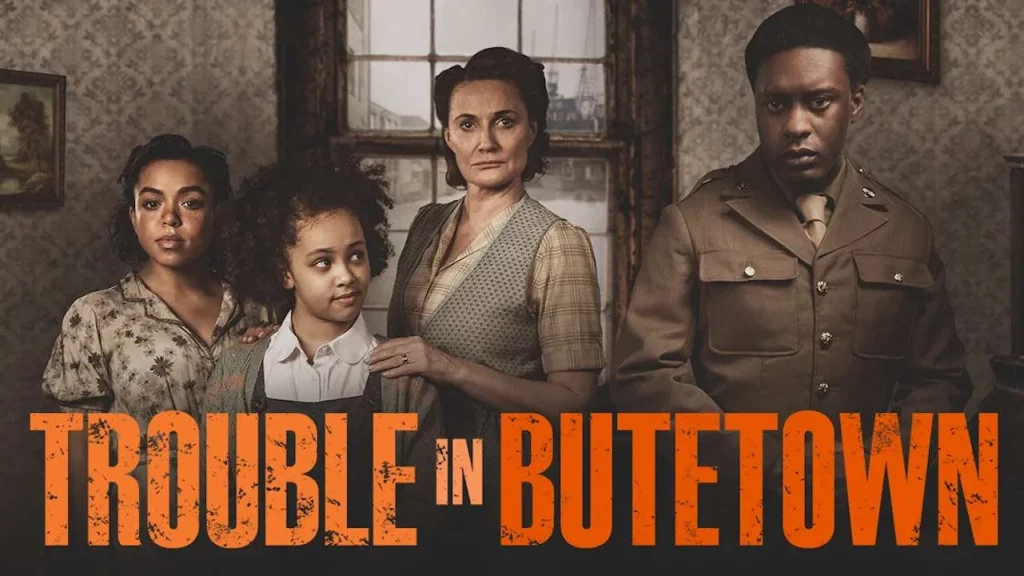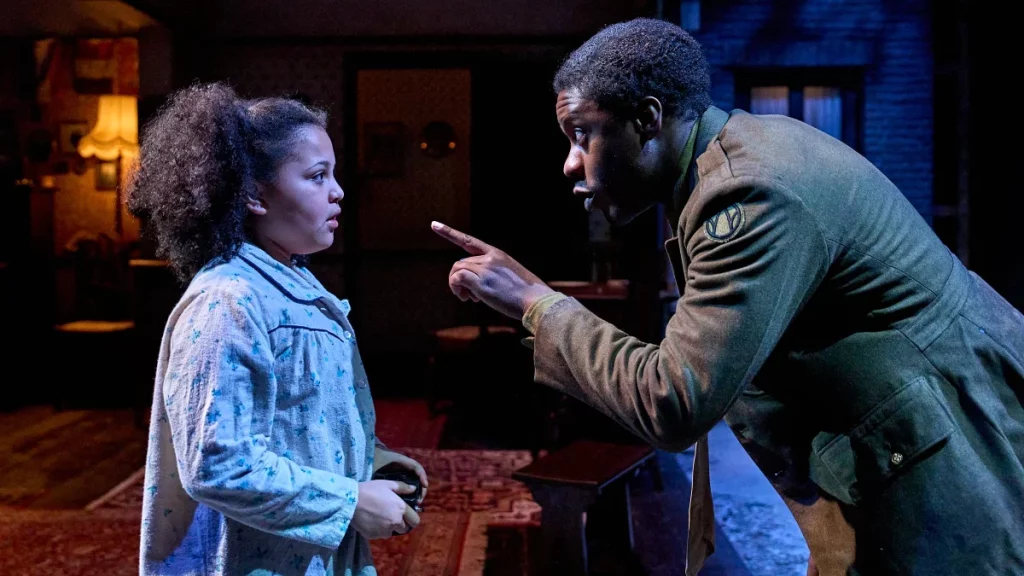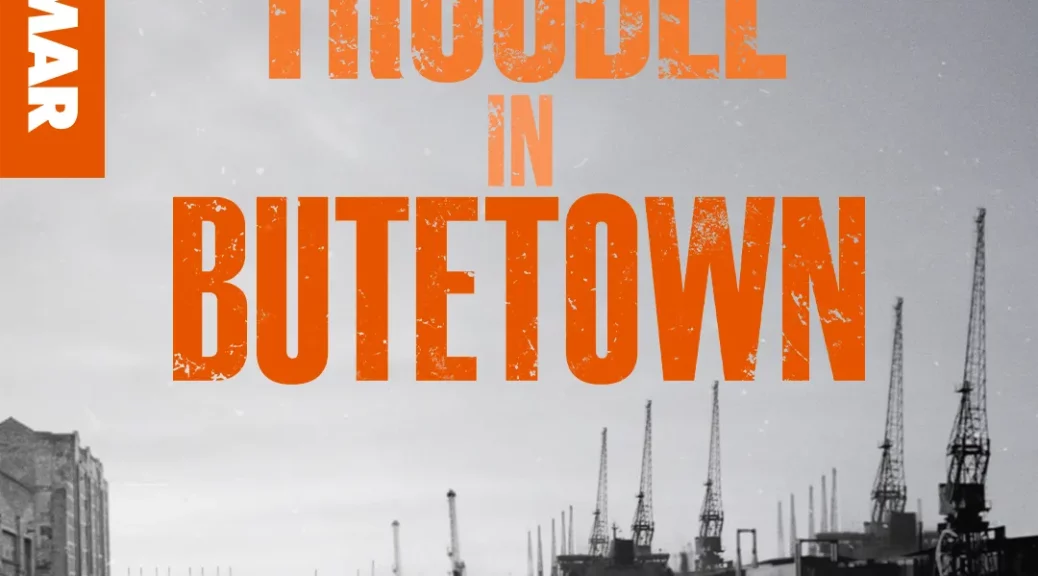
 (4 / 5)
(4 / 5)
To see the Wales-based play Trouble in Butetown performed on a London stage was a tantalising experience. This was a rare example of accent and language reverberating around a place not situated within the confines of its nation. To hear Welsh being spoken miles from home in front of a multicultural audience where English was the common denominator was both a surprise and a delight. When coupled with the intimacy of the Donmar, where the audience are immersed right in the action, the familiar phrases, said without translation or explanation, made for an authentic performance that was unexpected but welcome.
The scenery and costume added well to the verisimilitude, transporting us all into the living room of an illegal boarding house in wartime Cardiff. Credit must also go to the dialect coaches who have worked wonders with a cast of mixed nationalities, Sarah Parish among them who, as the matriarch Gwyneth, delivers a voice of which those in the Valleys would be proud. She may be the star name in this production but the star performance goes to young Rosie Ekenna as Georgie. Making her debut on stage, her confident and agile performance belies her nine years of age. She produces a character that is full of attitude and vigour; tough as nails, and a quick wit which is keenly delivered. Her relationship with Samuel Adewunmi, who plays American GI Nate, wanted for the murder of a fellow soldier, is especially wonderful, the two bouncing off one another as equals in both their dialogue and action.

Rita Bernard-Shaw also shines as Connie, an aspiring singer, whose stirring renditions of jazz standards and blues numbers mark her as a real talent vocally. Meanwhile, Zephryn Taitte brings a much harder edge to Norman than Call the Midwife fans are used to seeing (he plays pastor Cyril Robinson in the long-running series). His presence on stage is always evident though never dominant; a character of compassion borne of struggle and hardship. His inclusion, alongside fellow immigrant worker Dullah (Zaqi Ismail), means that Trouble in Butetown portrays what the programme calls the “cosmopolitan community with seafarers from all around the world making Cardiff their home”. In doing so, it cannot help but include racial tensions which, though localised, speak to universal issues, giving voice not only to past generations but present struggles too. This is a story not only of Tiger Bay but contemporary Britain too.
There is a feeling at the end of the play that what has been witnessed is a celebration of diversity. It presents Wales’ capital city as a place of welcome and integration that belies the historical notion of a homogenously white population. It also presents the cultural importance not only of BAME identities but the native language of the nation, included here not as statement or stereotype but as real expression of lived experience both then and now. It challenges the notion, still prevalent in wider society, that Welsh is a ‘dead’ language. Trouble in Butetown plays a small part in taking it beyond the border, and in doing so, communicates cultural inclusion on several fronts.
Trouble in Butetown premiered at the Donmar Warehouse between 10th February & 25th March 2023.

Gareth Williams

